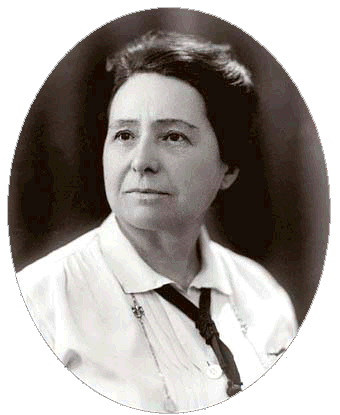While the happenings in
On the Verge (Or the Geography of Yearning) are wholly fictional, the three women in the play might be loosely based on real, amazing, pioneering women.
''I first conceived of On the Verge while reading A Long Desire, Evan S. Connell's book about travelers. I was particularly taken with a chapter about Victorian lady explorers, and I learned that the author had gotten his information from another book, Victorian Lady Travellers, by Dorothy Middleton. One of the things that interested me in these women was the way they would go out and have amazing, hair-raising adventures and then come back to England or America and be as conservative as if they had never left home. Many of them opposed women wearing trousers, smoking tobacco or even having the vote.
''For the rhythms and vocabulary I did a lot of reading of Victorian novels, and the play contains bits and pieces from actual journals and letters, though many of the anecdotes are distorted and fictionalized. Another important inspiration was The Land That Time Forgot, Arthur Conan Doyle's melodramatic science-fiction novel about Englishmen who become shipwrecked on an unknown island. When they ascend its high plateau, they find that all time exists at once there - that dinosaurs coexist with saber-toothed tigers.''

Fanny Bullock Workman.
Mental Floss says: Traveling with her husband William Hunter Workman, M.D., this American mountaineer broke a string of
women's altitude records
while becoming a noted geographer, cartographer, and travel writer. The
Workmans both came from wealth, enabling them to go on extravagant and
arduous trips, like
bicycle rides through Spain and India and treks up the Himalayas.
A shameless self-promoter, she earned a reputation for riling her
rivals. But her dedication to detailing her accomplishments with precise
measurements and thorough documentation meant she could back up her big
mouth. A compelling orator, Fanny was the first American woman to
lecture at the Sorbonne in Paris, and the second female explorer ever
allowed to address—and later join—the Royal Geographical Society of
London.
 |
Alexandra David-Néel
|
1920s anarchist, spiritualist, and traveling opera singer Alexandra David-Néel is responsible for much of the beatnik philosophy that went
mainstream in the 1960s courtesy of Jack Kerouac and Allen Ginsberg.
The
30+ books she wrote about her travels in Asia and spiritual adventures
among the Sikh and Buddhist communities of India and Nepal inspired
subsequent generations. She was the first western (and female) explorer
allowed into the typically forbidden Tibet, had the unprecedented
opportunity to quiz the Dalai Lama at length, and was fully adopted by
many of the royal spiritualist communities of the Far East.
Mary Henrietta Kingsley was a huge help in recording the cultures of
West Africa and breaking down the imperialist regime of Britain over the
local groups.
Throughout the 1890s, she traveled extensively
on her own, often living among the cultures which had been stigmatized
by a British society intent on maintaining their status as elite by
emphasizing the savage nature of African traditions. Mary's positive
exposes of real African life and negative journalism critiquing white
treatment of black cultures resulted in a flurry of improvements towards
improving colonial life and encouraging local rule.
If you'd like to learn more about these real, groundbreaking women, go
here and
here.
 Fanny Bullock Workman. Mental Floss says: Traveling with her husband William Hunter Workman, M.D., this American mountaineer broke a string of women's altitude records
while becoming a noted geographer, cartographer, and travel writer. The
Workmans both came from wealth, enabling them to go on extravagant and
arduous trips, like bicycle rides through Spain and India and treks up the Himalayas.
Fanny Bullock Workman. Mental Floss says: Traveling with her husband William Hunter Workman, M.D., this American mountaineer broke a string of women's altitude records
while becoming a noted geographer, cartographer, and travel writer. The
Workmans both came from wealth, enabling them to go on extravagant and
arduous trips, like bicycle rides through Spain and India and treks up the Himalayas.